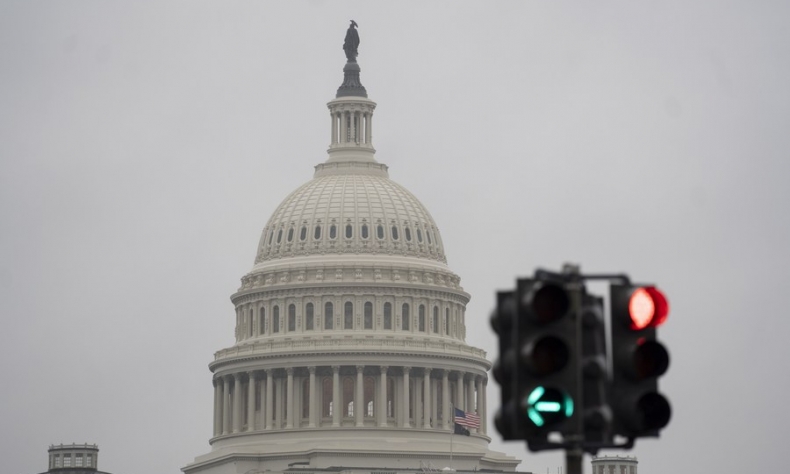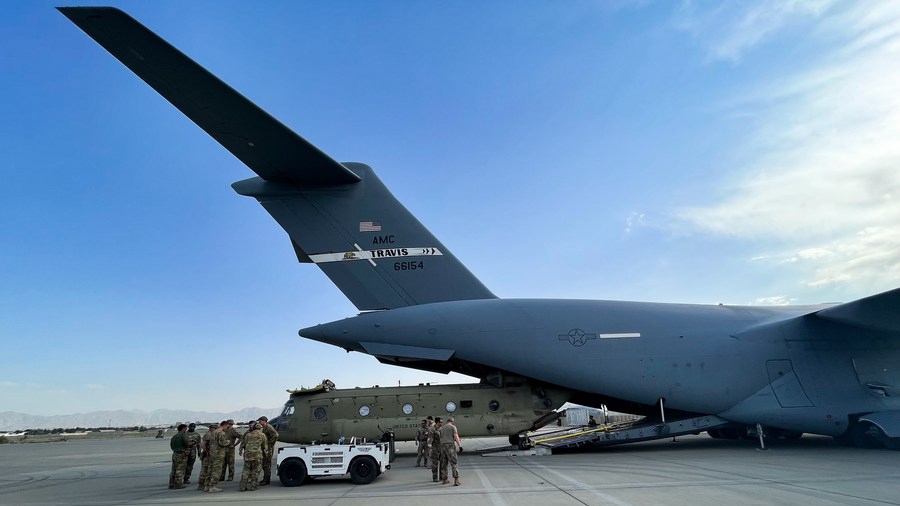Will Washington Lose the Future?

The US leadership, President and Congress, must reflect deeply on the current predicament of the US. Relative decline of its international position and real decline internally are cold hard facts which must be addressed.
Will Washington lose the future? Yes and no. If the US stays with its reckless and counterproductive policy of hegemony, then yes. If the US drops its policy of hegemony and pursues a restrained and prudent course, then the answer might be no.
Since World War II, the United States has lost four unnecessary wars: in Korea, Vietnam, Iraq, and Afghanistan. In recent days, the debacle of the US retreat from Afghanistan reminded the world of the debacle of the US retreat from Vietnam. A retreat from Iraq (and Syria) is inevitable.
Losing four unnecessary wars of choice with untold cost in blood and treasure suggests that the United States has a leadership problem and a governance problem. President Dwight Eisenhower campaigned on getting the US out of President Harry Truman’s Korean War. He followed through on that promise and then cut the Pentagon budget.
In his farewell speech, Eisenhower warned against the growth of the “military-industrial complex.” History has proven him correct about the disastrous effects of its influence in Washington.
But will the US Congress take a hard look at the twenty years of war in Afghanistan and Iraq? After that hard look will Congress start a change in foreign policy and national strategy?
Probably not. In DC, business as usual is the business of the politicians who have abdicated any responsibility for the consequences of their reckless and unnecessary wars and counterproductive foreign policy.
Justification of the Korean and Vietnam wars rested on the pretext of “anti-communism.” Justification for the Iraq and Afghan wars rested on the pretext of “anti-radical Islamism” and “human rights”. Today, justification for the Cold War style confrontation with China rests once again on “anti-communism”.
The pursuit of hegemony is in the nature of imperialism. The imperialist phase of US history arguably began with the War with Spain in 1898 and had the usual features of colonialism. The so-called “Grand Strategy” Washington has pursued since World War II is a mish mash of 19th and early 20th century strategy as proposed by such experts as the British strategist Halford Mackinder, the Dutch strategist Nicholas Spykman, and the American Admiral Alfred Mahan.

Washington’s Afghanistan intervention was based on the 19th century “Great Game” in which British imperialism confronted the Tsarist Russian Empire in Central Asia with Afghanistan as a key objective. Of course, the British Empire was defeated in Afghanistan which has been called the “graveyard of empires”.
Washington with its assorted think tanks sponsored by the military-industrial complex will now be scrambling to cook up a new Central Asian strategy to disrupt Chinese, Russian, and Iranian interests in the region.
Washington’s strategy to disrupt China’s innovative Belt and Road Initiative (BRI) will be updated in terms of the land and maritime dimensions. Lucrative contracts to “inside the Beltway” DC think tanks will spur the update.
While so-called experts in Washington think they are being “clear eyed” realists, in fact, they are arguably delusional. The strategic and policy experts in DC have lost four wars since World War II but this fact of history has not changed their perceptions, thinking, or intentions. Reason and reality escape them.
Thucydides (460-400 BC), the first Western historian of politics and war, wrote on the Peloponnesian War (431-404 BC) in ancient Greece. It is a study of imperialism, the failure of diplomacy, and the delusion of leaders and populations.
First, the Athenian empire gained hegemony, then the Spartan empire defeated the Athenian and gained hegemony. Then, the Thebans defeated the Spartan empire. But then, with the Greek-speaking region shattered and weak, it was easy pickings for Alexander the Great and the Macedonians to sweep in and crush the Greeks.
A major dramatic point in Thucydides’ narrative focused on the reckless Athenian military expedition to Sicily. The population was inflamed with thoughts of economic gain from war-related jobs and booty. The politicians mostly were for war. The military commanders were rash and delusional. Athens lost the campaign and was humiliated.
Sound familiar?
So where is the US headed after its humiliation in Afghanistan?
Washington has two choices. Either abandon a foreign policy of hegemony or continue down the ruinous path it has been on.
The logical policy would be to abandon the policy of hegemony and work out a new policy. The militarization of foreign policy would need to be dropped and a new diplomacy of constructive engagement adopted. Through such a policy, the US would gain some breathing space to address its deteriorating internal conditions of socio-economic decline and rising polarization and violence.
With such a policy of constructive engagement, the US would drop its policy of confrontation with China and Russia. Both countries support strengthening the role of the United Nations and International Law as necessary in the evolving multipolar, polycentric, and pluralist international system. Washington would adopt a cooperative attitude with both.
As to US-China relations, with a policy of constructive engagement, Washington would take up China’s proposal for a “Community with a Shared Future” and work in concert with China and Russia to achieve a better world.
Despite its relative decline internationally, with a policy of constructive engagement and vision, the United States could “win” the future by cooperating with the international community in a “win-win” mode.
Is this too much to expect of Washington?
Probably. Because the United States has been dominated by the military-industrial complex and a Cold War mentality for decades it will not be easy to extricate from their grip on policy. Congress has no present leaders in either the Senate or in the House who propose a restrained and prudent foreign policy. The mainstream media fully supports the hegemonic foreign policy. Public opinion is misled.
An old expression in the Middle East says, “A dog barks, the caravan moves on.” Will the US barking dog be left behind as the world moves on in an evolving international system? The decline of the US in relative terms means that its influence will weaken correspondingly.
Washington’s reputation has been significantly impacted by the Afghan debacle. Not only is its leadership increasingly under question but also it projects no vision for a sustainable future either for itself or for the international community.
The US leadership, President and Congress, must reflect deeply on the current predicament of the US. The relative decline of its international position and real decline internally are cold hard facts that must be addressed. With the US reputation in tatters, it is urgent for Washington to change its ways in order not to lose the future. The US can certainly play a valuable role in the international community by supporting peace and development so as to foster a common future for mankind.
The article reflects the author’s opinions, and not necessarily the views of China Focus.
 Facebook
Facebook
 Twitter
Twitter
 Linkedin
Linkedin
 Google +
Google +







